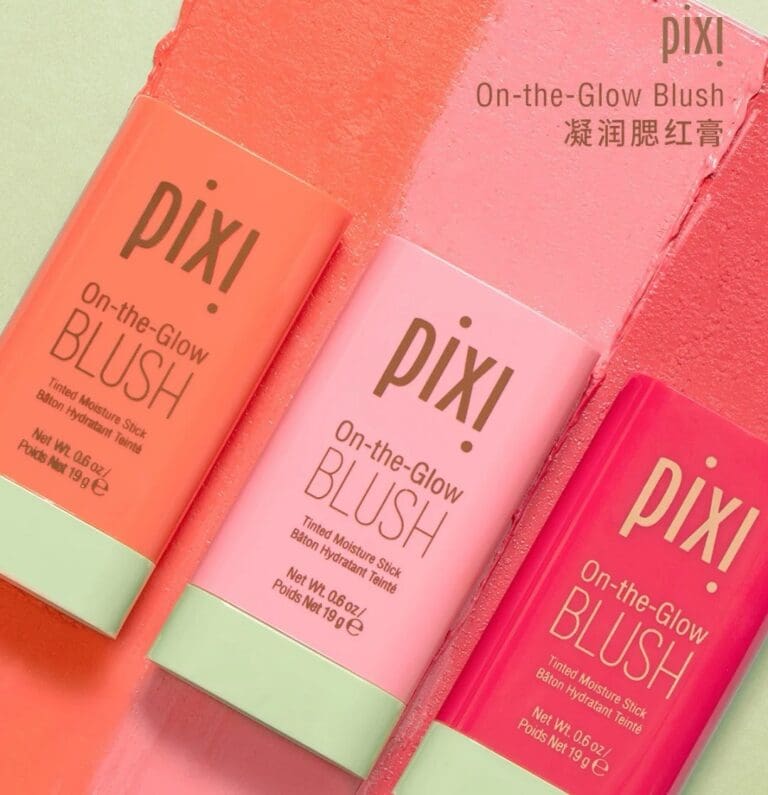
Introduction to Social Commerce in China
Social commerce has become a compelling avenue for brands to penetrate the Chinese market, especially in the skincare industry. This blend of social media and e-commerce provides unique ways to engage with Chinese consumers, who possess distinct buying behaviors and preferences. For skincare brands eyeing the Chinese market, understanding and navigating social commerce is essential to boost sales and build a loyal customer base.
Understanding the Chinese Consumer Behavior
Importance of Cultural Sensitivity
Cultural sensitivity is a cornerstone when entering the Chinese market. Chinese consumers are deeply connected to their traditions and cultural norms affect their purchasing decisions. For instance, skincare brands promoting ingredients rooted in traditional Chinese medicine can resonate well. Recognizing and respecting these cultural elements can create a more sincere and effective marketing approach.
Additionally, linguistic nuances play a significant role. Using clear and accurate translations, and even regional dialects, where relevant, enhances relatability. A campaign that acknowledges Chinese New Year or Mid-Autumn Festival will gain more traction due to its cultural relevance.
Consumer Trust and Its Role in Social Commerce
Trust is vital in the Chinese marketplace. Given the history of counterfeit products, especially in the skincare sector, consumers are cautious. They rely heavily on recommendations from friends, family, and influencers. Brands that manage to build trustworthiness see a significant boost in loyal followers.
Transparent practices, such as showcasing product authenticity, sourcing, and consumer reviews, are necessary. Engaging directly with customers and promptly addressing concerns can foster a trustworthy relationship. Trust isn’t built overnight, but consistent, honest interactions with your audience will pay off.
Local Festivities and E-commerce
Local festivities are golden opportunities for brands to run targeted campaigns. Festivals like Lunar New Year, Singles’ Day (11.11), and the Double 12 Shopping Festival are massive events in China. These occasions are akin to Black Friday or Cyber Monday in the West, with scores of consumers looking for deals and new products.
Crafting special deals, limited-edition products, and thematic campaigns around these festivities can create buzz and incentivize purchases. Skincare brands can introduce gift sets or exclusive bundles that cater to festive gift-giving traditions, leveraging the heightened consumer activity during these times.
Leveraging Emerging Platforms
Exploiting the Potential of Xiaohongshu (Little Red Book)
Xiaohongshu, or Little Red Book, is a vital platform for any skincare brand wanting to enter China’s social commerce scene. It combines social media with a robust e-commerce component, where users share reviews and purchase products within the app. This app’s majority user base is young, affluent females—an ideal demographic for skincare brands.
Brands can utilize this platform to showcase user-generated content, expert reviews, and educational posts about skincare routines. Collaborating with micro-influencers on Xiaohongshu can also increase brand visibility and credibility. Don’t just sell products; tell stories about them, share their benefits, and show consumers how they fit into their daily routine.
Utilizing Pinduoduo for Group Buying
Pinduoduo has revolutionized the concept of group buying, a model where shoppers team up to get bulk purchase discounts. It’s particularly popular among price-sensitive and community-driven consumers, which presents a great opportunity for skincare brands to offer bundle deals.
To maximize the platform’s potential, brands can create group buying campaigns that encourage users to invite friends and family to purchase together. This not only drives sales but also fosters community engagement around your brand. Offering exclusive discounts for group buys can attract a broader audience looking for value deals.
Live Streaming on Kuaishou
Live streaming has become a key player in China’s e-commerce ecosystem, and Kuaishou is at the forefront of this trend. Through live streaming, brands can provide real-time demonstrations of their skincare products, engage with viewers, and answer questions on the spot.
Consider organizing regular live sessions where influencers or brand representatives can interact with the audience. These sessions can include product tutorials, behind-the-scenes content, and exclusive live discounts. The immediacy and authenticity of live streaming make it a powerful tool for building a genuine connection with consumers.
Harnessing the Power of Influencers
Micro and Nano Influencers
Micro and nano influencers may not have millions of followers, but they often have highly engaged and loyal audiences. For skincare brands, these influencers can introduce products to their followers in a more personalized and authentic way.
Identify influencers who create skincare content and have a sizeable following within your target demographic. Their genuine reviews and recommendations can carry significant weight and can lead to higher conversion rates compared to traditional advertising methods. Small but numerous collaborations can amplify brand awareness effectively.
Collaborations with KOLs (Key Opinion Leaders)
Key Opinion Leaders (KOLs) are influential figures in the Chinese digital landscape. Collaborating with well-known skincare experts or beauty bloggers can significantly boost your brand’s credibility and reach. These individuals possess authority and trust within their community, making their endorsements especially impactful.
When selecting KOLs, align their follower demographics with your target audience. For skincare brands, partnering with a KOL known for their expertise in skincare ensures that your products are presented to an engaged and interested audience. Organizing joint campaigns, giveaways, and appearances can further engage KOLs’ followers.
Strategies for User-Generated Content
Encouraging user-generated content (UGC) can greatly increase brand engagement. Motivate your customers to share their experiences with your products on social media. Implement hashtags and run photo contests to create a buzz around your brand.
Feature UGC prominently on your social media channels and website. This not only provides social proof but also builds a sense of community and trust. Consumers are more likely to trust fellow users’ experiences over direct brand messaging. Consequently, a comprehensive UGC strategy can effectively boost credibility and interest in your skincare products.
Integrating Seamless Payment Solutions
Alipay and WeChat Pay
In China, Alipay and WeChat Pay are the dominant payment methods. Skincare brands must integrate these payment options to ensure a smooth checkout process for customers. These platforms offer not just ease but also enhanced security, which is crucial for online transactions.
Implementing Alipay and WeChat Pay can also allow for a range of value-added services, such as loyalty programs and cashback offers, that can attract and retain customers. Ensuring that these payment methods are readily available and user-friendly is essential for reducing cart abandonment rates and improving the overall shopping experience.
Digital Wallets and Their Impact
Digital wallets have transformed how consumers in China conduct transactions. Beyond just payments, they encompass a suite of financial services, loyalty programs, and more. For skincare brands, understanding the ecosystem of digital wallets can open avenues for deeper engagement.
Offering incentives like digital coupons, loyalty points, and rewards through digital wallets can incentivize repeat purchases and enhance customer loyalty. Digital wallets also provide valuable data that brands can use to understand consumer behavior better and tailor their offerings accordingly.
Importance of Secure Transactions
Security in transactions builds trust, which, as discussed, is crucial in the Chinese market. Ensuring that your e-commerce platform supports secure payment gateways can alleviate concerns and protect consumer data. SSL certificates, encryption, and secure payment processing mechanisms should be in place to safeguard customer information.
Highlighting your commitment to secure transactions through visible Badges or guarantees can reassure customers. Explicitly communicating your privacy policies and security measures can further build trust and encourage more confident purchasing decisions.
Personalized Customer Engagement
Segmented Marketing Approaches
Segmenting your audience allows you to send more targeted and relevant messages. In a diverse market like China, understanding consumer preferences based on demographic and behavioral data can enable more personal and meaningful interactions.
Use data analytics tools to segment your audience based on factors like age, location, purchase history, and preferences. Tailor your marketing campaigns to these segments to ensure that your messaging resonates well. Segmented marketing not only increases engagement but also improves conversion rates.
Utilizing Chatbots and AI for Customer Support
AI and chatbots are becoming increasingly popular in enhancing customer support. These technologies ensure that your customer service is available 24/7 to address queries, provide recommendations, and assist with transactions. For skincare brands, AI can also help suggest products based on individual skin types or concerns.
Integrating chatbots in your social media platforms and e-commerce site can improve the customer experience and ensure timely support. This can lead to higher satisfaction rates and potential upselling opportunities as the AI provides personalized suggestions.
Hyper-Personalized Offers and Discounts
Personalization goes a long way in making customers feel valued. By leveraging data, brands can create hyper-personalized offers and discounts that cater to individual preferences and behaviors. For skincare brands, personalized product recommendations and exclusive discounts based on past purchases can drive repeat business.
Implementing a loyalty program that rewards customers for frequent purchases and engagement can also foster loyalty. Personalized emails, SMS, and push notifications with customized offers can significantly increase engagement and sales.
Creating Interactive and Engaging Content
Short Video Content on Douyin (TikTok)
Douyin, known globally as TikTok, is a platform where short, engaging videos thrive. Skincare brands can use this medium to create fun and informative content that resonates with a younger audience. Tutorials, product demos, and user testimonials can all be effectively showcased through short video formats.
Leveraging trending challenges and integrating your products creatively can increase visibility and engagement. Regularly updating content and engaging with followers can keep the brand relevant and appealing.
Gamification Techniques
Gamification adds an element of fun and competition to the shopping experience. Techniques such as reward points, interactive quizzes, or spin-the-wheel promotions can make the buying process more engaging. For skincare brands, creating games that educate users about skin health or product benefits can simultaneously entertain and inform.
Implementing these techniques on your website or app can enhance user experience and encourage more prolonged interaction with your brand. Gamification can also drive repeat visits and foster a community around your brand.
Storytelling for Brand Engagement
Storytelling helps humanize your brand and connect emotionally with consumers. Sharing your brand’s journey, values, and the inspiration behind your products can create a deeper bond with your audience. For skincare brands, stories about ingredient sourcing, product development, or customer success stories can be particularly impactful.
Utilize your social media platforms, blogs, and email newsletters to regularly share engaging stories. Visual elements such as photos and videos can enhance the storytelling experience. Authentic and compelling narratives can build brand loyalty and distinguish your brand in a competitive market.
As you venture into the realm of social commerce in China, understanding and adopting these strategies can significantly boost your success. From building trust and cultural sensitivity to leveraging new platforms and creating engaging content, every step is crucial.
For skincare brands looking to navigate this dynamic landscape, YASO offers tailored social commerce solutions designed to optimize your market entry and growth in China. Visit YASO to learn how we can assist you in unlocking the full potential of social commerce.
By implementing these strategies, skincare brands can effectively penetrate the Chinese market and build a loyal, trusting customer base. Embrace the power of social commerce and start your journey towards success today.



